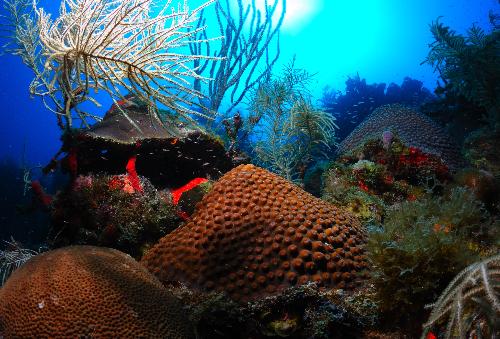Removing carbon dioxide from the atmosphere will not protect our oceans and marine life if we continue with the current rate of emissions, according to research published this week. 
There has been a recent surge in efforts to develop techniques to scrub carbon dioxide from the atmosphere, a process known as geo-engineering.
However, a team of scientists led by Sabine Mathesius at the GEOMAR Helmholtz Centre for Ocean Research in Kiel, have shown that geo-engineering alone will not combat problems associated with climate change.
This is because carbon dioxide isn't stored in the atmosphere alone. Approximately one third of human emissions dissolve in the world's oceans, where they can be locked away biochemically for hundreds of years.
When carbon dioxide enters the ocean, it acidifies the water. This can have effects on marine life, such as corals and shellfish, by making it more difficult for them to build shells and skeletons. Changes in the delicate marine ecosystem can then have knock-on effects throughout the food chain, indirectly also influencing the human population through impacts on marine-based food stocks.
Although geo-engineering may be capable of restoring atmospheric carbon dioxide concentrations to pre-industrial levels, it will take much longer to realise the same effects in the deep ocean. In the new study published in Nature Climate Change, Mathesius and her team used two computer model scenarios to simulate the oceanic response to the removal of 5 billion and 25 billion tonnes of carbon from the atmosphere per year.
Even the unrealistic removal of 25 billion tonnes of carbon from the atmosphere each year cannot restore pre-industrial conditions in the ocean in less than a human lifetime, if we continue with current rates of emissions.
This supports the growing consensus that simultaneous implementation of climate change mitigation and adaptation techniques is fundamental to address the global issue of climate change.
"The only solution would be to really reduce emissions now. It would not work to keep on doing business as usual, and then get the carbon dioxide out of the atmosphere later: we would really have to cut emissions immediately," says Mathesius.









Comments
Add a comment